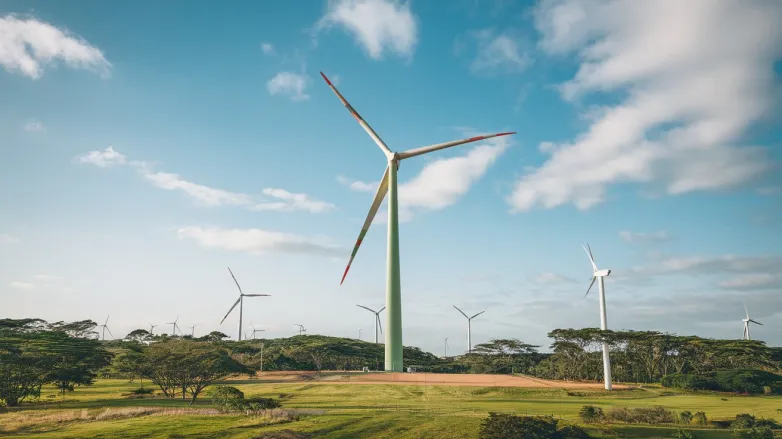Casa dos Ventos Powers Green Fertilizer Production in Brazil
- Casa dos Ventos teams with Atlas Agro to power a green hydrogen facility, revolutionizing fertiliser production in Brazil and paving the way for a sustainable agricultural future.

Casa dos Ventos, a Brazilian renewable energy developer, has partnered with Swiss firm Atlas Agro to supply wind and solar power for a green hydrogen facility that will fuel a fertiliser plant in Uberaba, Minas Gerais. Under a memorandum of understanding, Casa dos Ventos will provide 300 average megawatts (MWa) of renewable energy to the facility, which will produce green ammonium nitrate, vital for reducing agricultural carbon emissions.
The project is slated to begin commercial operations in 2028, aiming to produce approximately 530,000 tonnes of fertiliser annually. This initiative represents a sustainable alternative to the current reliance on natural gas for nitrogen fertiliser production, supporting Brazil's efforts to decrease imports and enhance energy independence.
How will Casa dos Ventos and Atlas Agro transform Brazil's fertiliser production with green energy?
- Sustainable Energy Generation: Casa dos Ventos will harness Brazil's abundant wind and solar resources to generate renewable energy. This will ensure that the fertiliser plant operates on clean energy, significantly lowering carbon emissions compared to traditional fossil fuel-based production methods.
- Green Hydrogen Production: The collaboration will facilitate the production of green hydrogen, which is derived from renewable energy. Green hydrogen plays a critical role in synthesizing ammonia—a key ingredient in fertiliser manufacturing. This innovative approach reduces reliance on natural gas, leading to a more sustainable fertiliser production process.
- Reduction of Carbon Footprint: By producing green ammonium nitrate, the fertiliser plant will contribute to lowering agricultural carbon emissions. This aligns with global efforts to adopt more environmentally friendly farming practices and promotes the use of less harmful inputs in agriculture.
- Local Economic Development: The establishment of a green fertiliser plant in Uberaba is likely to stimulate local economic growth. It will create jobs in construction, operations, and maintenance, while also supporting local suppliers and businesses involved in the renewable energy sector.
- Strengthening Brazil’s Energy Independence: With the shift to domestically produced green fertiliser and renewable energy, Brazil aims to reduce its dependency on imported fertilisers and energy sources, bolstering national security and economic stability.
- Innovative Technologies: The project may incorporate cutting-edge technologies for energy storage and hydrogen production, demonstrating Brazil’s commitment to investing in advanced renewable energy solutions. These technologies could serve as a model for future projects in the country and beyond.
- Policy and Regulatory Framework: This partnership could encourage the Brazilian government to implement supportive policies for renewable energy and green hydrogen production, thus creating a more conducive environment for sustainable agricultural practices.
- Impacts on Agriculture: Enhanced access to sustainably produced fertilisers could aid Brazilian farmers in achieving higher yields while adhering to environmental sustainability. This could also improve food security in the region by promoting effective fertilisation techniques that do not harm the ecosystem.
- Investment and Financial Implications: The partnership between Casa dos Ventos and Atlas Agro may attract further investments into Brazil's renewable energy sector and its agricultural supply chains, highlighting the financial viability of transitioning to sustainable practices.
- Future Scalability: The infrastructure and technologies developed through this initiative could be scaled to other regions in Brazil, paving the way for a broader adoption of renewable energy in agricultural production and potentially influencing global fertiliser production practices.
- Education and Research Opportunities: The project could foster partnerships with educational and research institutions, focusing on innovation in sustainable agriculture and renewable energy, thus promoting knowledge sharing and opening avenues for future research collaborations.
Also read

